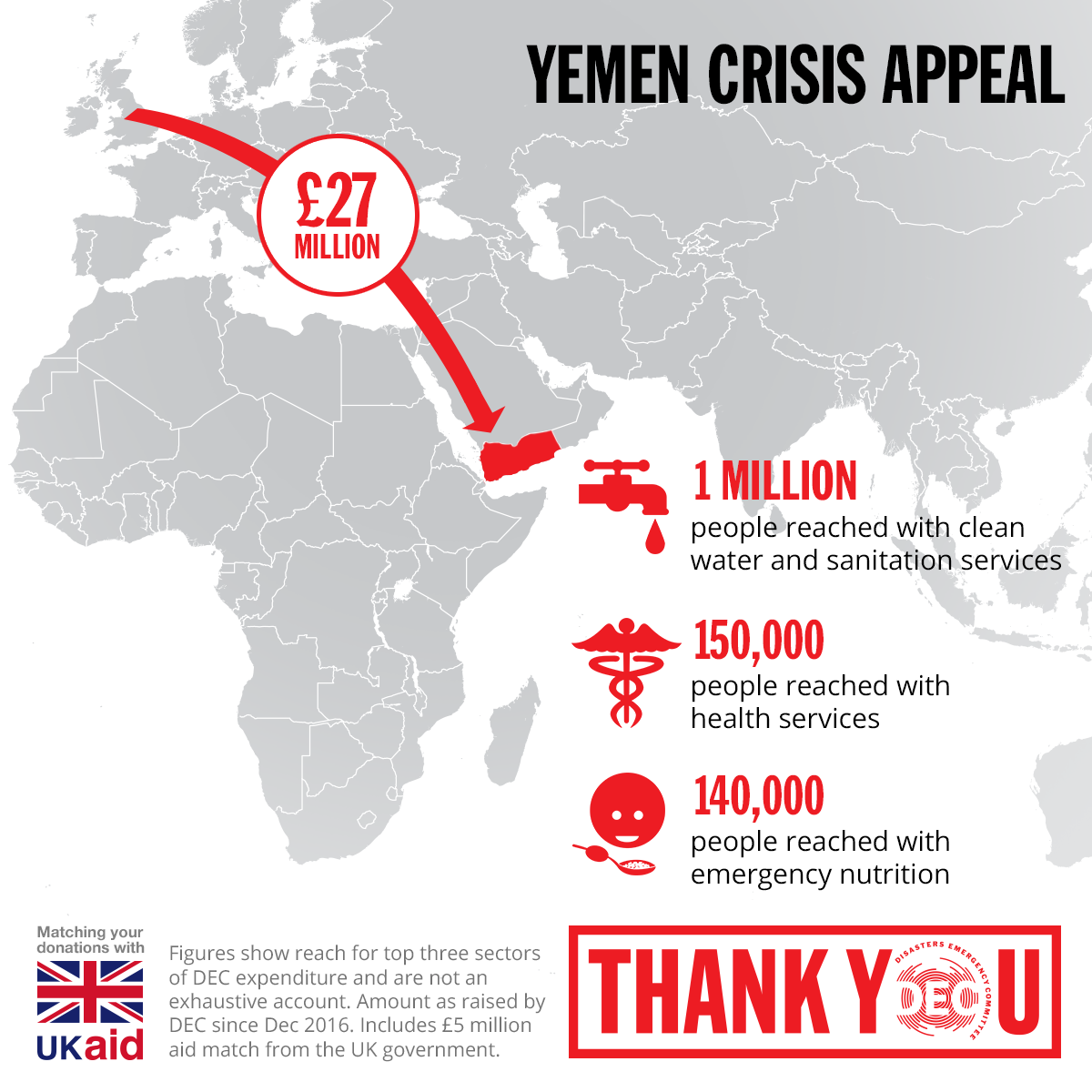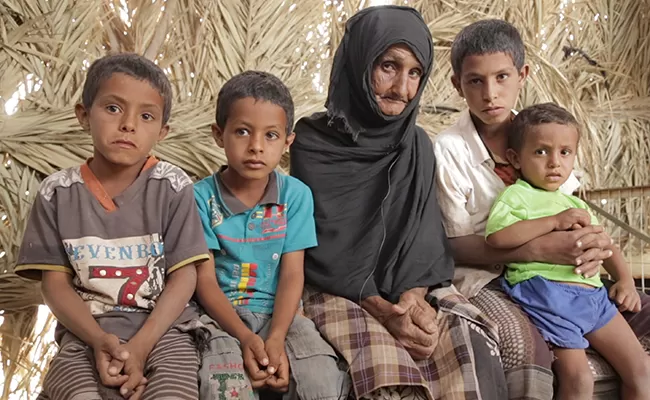Aliya showed me their ‘bedroom’ – three single beds stitched together. That was it – the open sky for the roof and the open desert for walls and some plastic sheeting to keep the sand out. Aliya has received some help in the form of food packs but, as is custom here, she has shared it with others in need who weren’t so fortunate.
The DEC Yemen Crisis Appeal, launched on 13 December 2016, has now raised £27 million thanks to the generous support of the British public, many corporate supporters and the UK Government through its Aid Match scheme. Fatima and the many people I met were appreciative of the money so generously given by the British public; especially as Yemen is little known and the humanitarian crisis has been overshadowed by the politics of the region.

The conflict in Yemen has had a devastating impact on the population from all parts of the country and on all sides, but it’s the innocent families and children who are suffering the most. DEC funds are helping thousands of children like Omar and families like Aliya’s in the hope we can prevent their children succumbing to severe malnutrition and to avert the ultimate horror of famine.
It’s never been so bad for millions of people in Yemen, but it’s not too late. DEC member charities and others are reaching out to help the most vulnerable. The funds that people have given are already saving lives and making a huge difference. We hope that, with more support, we can reach even more people.


